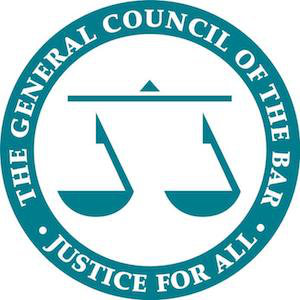Areas of Legal Practice – Different Types of Law
There are several types of law you’ll come across during your legal studies. On this page, you’ll find a comprehensive list of different areas of law you can choose to specialise in during your journey towards a career in law. Read more about the ones that interest you with our specific guides, and make sure you apply for work experience in these areas to see if they’re a good fit.
Struggling to choose which of the types of law you want to specialise in? Take our two-minute quiz!
WHICH AREA OF LAW IS RIGHT FOR YOU? TAKE THE QUIZ!
If there is an area of law you’re particularly interested in, take a look at our various Areas of Law pages, including:
Each of these more specific pages will also tell you:
- What a typical day looks like in that area of law;
- Where you can practise in that area of law;
- What sort of person would suit that area of law;
- What work experience looks good for that type of law.
For a more basic overview of many different areas of law, see below some examples that you may wish to investigate in more detail:
Areas of Law You Can Specialise in
Arbitration
Arbitration is a technique of resolving civil and commercial disputes outside of court. The parties present their case to a single arbitrator or a panel who then hands down a decision which the parties have agreed to be bound by. It is increasingly common to arbitrate international disputes in a pre-agreed jurisdiction instead of turning to litigation.
Aviation LawThis type of law concerns air travel and is a matter of international law. It involves admiralty (maritime) law but the business aspects of air travel are largely regulated by the International Civil Aviation Organization. The emerging field of space law is predominantly based on aviation law. The Air Navigation and Transport Act 1920 forms the basis of aviation regulation in the UK.
Banking and Finance LawBanking and finance is a diverse type of law which involves the regulation of financial products and is primarily focused on loan transactions. The work of a finance lawyer ranges from advising on simple bank loans to companies to working on highly structured financing arrangements across multiple jurisdictions. Finance lawyers have to be very commercially minded and consider the business as well as legal implications of every deal.
Clinical Negligence LawClinical negligence law can be both incredibly complex and heart-wrenching. Cases related to this legal practice can involve difficult medical issues and patients that suffer life-long injuries after wrongful treatment.
European LawEuropean law is a system of rules affecting member states of the European Union. The fundamental principles of European Law include free movement of people, goods and services. To promote these principles, competition law has evolved to regulate market competition to prevent any one organisation having the monopoly in a particular industry.
Competition law is intended to prevent anti-competitive behaviour in the market. It aims to ensure the market is fair for consumers and producers by preventing unethical or anti-competitive practices designed to gain a larger market share than what would be achieved through honest competition.
Construction LawConstruction law deals with issues relating to building construction and engineering. It involves aspects of contract law, planning law, property law, commercial law and tort. Lawyers specialising in construction could be working on large building projects or acting in disputes where there has been defective construction or non-compliance with planning laws.
Corporate LawCorporate law governs the functioning of companies; from how they are formed to the transactions they are permitted to engage in. It applies to shareholders, directors, creditors and other stakeholders by regulating their rights and duties. One of the most important pieces of legislation in corporate law is the Companies Act 2006.
Criminal LawCriminal law is the branch of law which relates to crime and the punishment of those who violate laws. Most criminal law is established by statute, however in the UK there are many important criminal cases which have created legal principles. The fundamentals of a crime are known as the
actus reus and the
mens rea. These two Latin terms mean “guilty act” and “guilty mind” and both must be established in order to prove culpability in most crimes.
Dispute ResolutionDispute resolution can be split into two major types. Adjudicative processes include litigation and arbitration and involve an independent third party coming to a final binding judgement on an issue. Meanwhile, consensual processes like mediation, conciliation or negotiation involve the parties coming to a decision between themselves, sometimes with the help of an independent facilitator.
Employment LawEmployment law is the type of law regulating the relationship between employers and employees; it sets out their respective rights and obligations. Employment law and pensions law are related since employers often provide their employees with access to a pension scheme. However, pensions can also be stand-alone area of specialism which involves advise on the creation, structuring and funding of pension schemes, their management and the resolving of any associated disputes.
Energy and Infrastructure LawLawyers working in this field are often referred to as “projects lawyers”. Infrastructure law encompasses transactions in the energy sector as well as projects in road, rail and telecoms. Energy and infrastructure lawyers have to consider commercial, strategic, technical, geographical and political factors that shape and impact transactions in addition to the legal issues.
Environmental LawEnvironmental law is shaped by treaties, statutes, regulations, common and customary laws which address the effects of human activity on the natural environment. Environmental law certainly has an international element as many treaties governing everything from pollution to sustainable farming are the result of multi-national agreements.
Family LawFamily law deals with family matters and domestic relations, including marriage and civil partnerships, the termination of relationships and child law. Family law has grown dramatically since the 1970s, as legislators and judges have re-examined and redefined legal relationships. Family law is now entwined with national debates over the structure of family, gender bias and morality.
Gaming Law
This type of law regulates the gaming and gambling industry. Gaming law is not a branch of law in the traditional sense but rather a collection of several areas of law that include criminal law, regulatory law, constitutional law, administrative law, company law, contract law, and competition law. Gaming law relates to everything from the legality of gambling to the fairness of gaming terms and conditions.
Human Rights LawHuman rights are rights that all humans are entitled to. It is governed by fore example the European Convention on Human Rights and, specific to the UK, the Human Rights Act 1998. More famously is the United Nations who protect international human rights. The law from these sources prohibits slavery, torture, convictions without proper trials etc. The law is generally concerned with fundamental rights and preventing abuse.
Immigration LawImmigration law refers to national government policies controlling the immigration and deportation of people, and other matters such as citizenship. Immigration law varies from country to country and can be the subject of very high profile international cases relating to various topics such as the legality of detention of immigrants and the legal status of aliens without a nationality.
Insolvency LawInsolvency law regulates companies in the United Kingdom which are unable to repay their debts. While UK bankruptcy law concerns the rules for natural persons, insolvency law is used to determine whether and how much the creditors of companies are entitled to recover. The main aim of modern UK insolvency law is to rescue the company and this is reflected in the duties owed by insolvency practitioners such as company administrators.
Insurance LawInsurance law relates to the regulation of insurance policies and claims. It can be broadly broken into three categories – regulation of the business of insurance; regulation of the content of insurance policies, especially with regard to consumer policies; and regulations relating to insurance claims. Insurance law is largely based on contract law and also often involves the litigation of insurance claims.
Intellectual Property LawIntellectual law relates to the rights and obligations which attach to creations of the intellect which can arise in artistic works as well as scientific inventions and various designs. This type of law regulates whether an intellectual property right exists, whether it has been correctly registered and whether it can be exploited. Intellectual property includes registered rights such as trademarks, patents and designs as well as unregistered rights such as copyright.
Media LawMedia Law is an area of law that relates to the regulation of the telecommunications industry, information technology, broadcasting, advertising, the entertainment industry, and the Internet. Essentially, media law governs what can be published and broadcast. Media law is in many ways related to intellectual property law, however it also involves matters such as censorship and the tort of defamation.
Property LawProperty law governs the various forms of ownership and tenancy in and relating to property. There are two types of property: real property (immovable property including land and buildings) and personal property (movable property such as jewellery and intangible property such as shares or intellectual property). Real property lawyers often advise on transactions involving freehold and leasehold property as well as various property rights such as the rights of tenants and rights of way over land.
Public Sector and Local Government LawPublic law governs the relationship between people and the state. Public law comprises constitutional law, administrative law, tax law and criminal law. The relationship between the state and individuals is inherently unbalanced since the state makes decisions designed to regulate how individuals behave. However, the rule of law doctrine means authorities may only act within the law and must obey the law. A citizen is therefore entitled to challenge the actions of the state through judicial review.
Shipping and Maritime LawShipping lawyers deal with the carriage of goods or people by sea, plus any and every matter related to the financing, construction, use, insurance and decommissioning of the ships that carry them. Maritime law is an international type of law but ultimately based on principles of English law. The work of maritime lawyers can be divided into ‘wet’ work relating to accidents or misadventure at sea, and ‘dry’ work involving land-based, commercial and contractual matters.
Sports lawyers can represent players, clubs, sports agents, regulatory associations or sponsorship companies. Sports law requires good knowledge of contract law but also involves telecommunications, finance and intellectual property, negligence and privacy law. A large part of sports law is the regulation of the sports industry and the compliance of teams, clubs and individual athletes with the rules applicable to them.
Tax Law
Tax law regulates the taxation of individuals and companies. Tax law involves contentious and non-contentious work such as tax planning or litigation relating to compliance with tax laws. Tax law also spans both the public and private sectors; private sector tax lawyers advise private individuals and companies on their tax affairs while public sector tax lawyer will work for governmental tax and revenue departments advising on the drafting and enforcement of tax legislation.
Tort is an area of law which stretches across a broad range of legal areas, allowing individuals who have had a wrong committed against them to claim damages against the person who has committed the wrong. This is one of the core topics in the LLB which all aspiring lawyers will learn about in detail during their studies and training.
Wills, Trust and Probate Law
A will is a legal document containing instructions as to what should be done with a person’s money and property after their death. If a person does not leave a will, their estate is distributed according to statutory probate rules. Trusts are legal instruments which allow property to be held and dealt with by one person on behalf of another. Private client lawyers advise on all these matters and are involved in estate planning, the administration and distribution of the deceased’s estate to beneficiaries and any litigation relating to the estate.
Now you’ve had a look through them all, the next step is to find out a little more with our specific guides…
Or take our quiz to find the perfect type of law for you!
WHICH AREA OF LAW IS RIGHT FOR YOU? TAKE THE QUIZ!

































